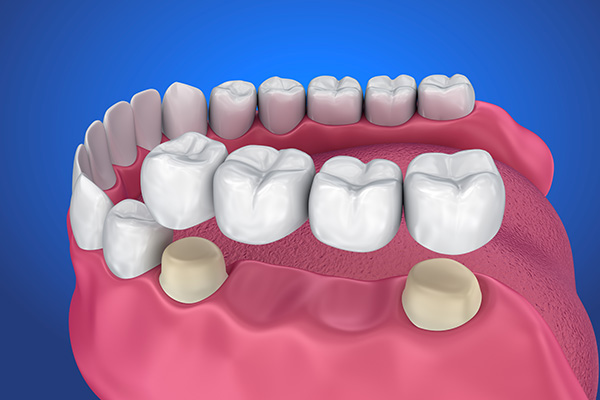 Dental implants are a newer option for replacing missing teeth. They involve a titanium screw inserted into the jawbone, and then months later, once the jawbone has healed and the screw is fused into the bone, a crown is attached to the screw.
Dental implants are a newer option for replacing missing teeth. They involve a titanium screw inserted into the jawbone, and then months later, once the jawbone has healed and the screw is fused into the bone, a crown is attached to the screw.
It can be expensive to get dental implants, but since they offer full chewing power, unlike dentures, many people find dental implants to be a better option for replacing missing teeth. Continue reading to learn about why people choose dental implants and whether or not dental implants might be the right solution for you.
Who benefits from dental implants?
Modern dental technology has made it possible for dental implants to be a viable option for nearly all people, whereas dental implants were once more limited in terms of who could get them. For example, people with bone loss were once ineligible for dental implants, but now even people with some bone loss may be possible candidates for dental implants.
People who do not want to deal with the reduced chewing ability and discomfort of dentures or are looking to avoid the bone loss of dentures may want to consider getting dental implants. Dental implants can last a lifetime, so people looking to avoid the maintenance of getting their dentures or bridges replaced several times in their life would benefit from dental implants as well.
Dental implants are less costly than dental bridges over time because they do not need to be replaced. Dental implants are a better investment than paying less for bridges at first but then having to purchase them several times throughout your life.
Why do people choose dental implants?
One of the main benefits of dental implants as an option for replacing missing teeth for replacing missing teeth is that they look, feel, and function like your real teeth. They even give you full chewing power that dentures do not offer. Dental implants also do not cover the roof of your mouth as dentures do, and therefore they won’t interfere with your sense of taste.
Unlike dentures, dental implants require no adhesive paste to stay in place, and they do not need to be taken out to be cleaned (dental implants can be brushed and glossed just like your regular teeth).
Dental implants will not move properly make a clicking noise while you are chewing your food or talking. As long as they are properly taken care of, dental implants will never need to be replaced like dentures and bridges will, making dental implants the more cost-effective solution in the long run.
Food will not get stuck underneath the surface of dental implants the way food can get stuck under a bridge. This means no risk of infection from food getting trapped (although there is a risk of infection associated with the healing process of getting the screws put in for dental implants).
Recent Posts
If you are someone with gaps in their smile, there are many options for replacing missing teeth available to you. A dental bridge is a time-honored solution for replacing missing teeth. Similar methods for replacing teeth have been used for thousands of years.A dental bridge is a single or series of false teeth, called pontics,…
There are many options for replacing missing teeth, even if they are your front teeth that are missing. Missing front teeth can severely hurt a person’s self-esteem and confidence because the missing teeth are right where everyone can see them. However, there are solutions to that problem. Read on to learn more. Your dentist will…
Dental implants are a popular option for replacing missing teeth. While they offer the same aesthetic benefits as other replacement options, there are multiple other benefits provided by dental implants that alternatives fail to deliver.One crucial component of a dental implant is a titanium screw that is placed directly into the jawbone. The screw forms…


